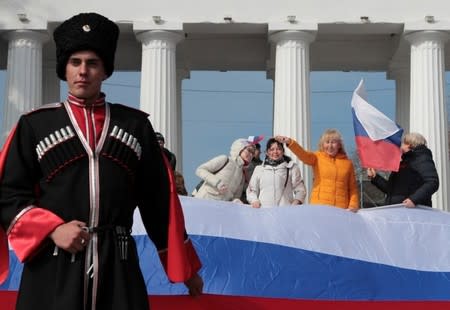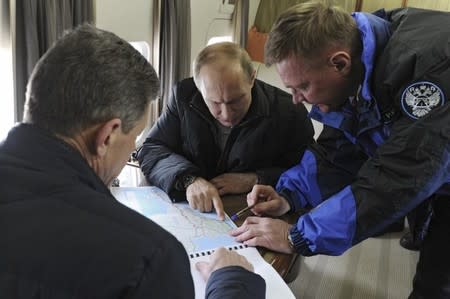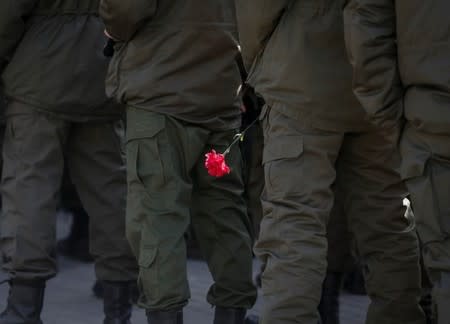EU urges more countries to impose sanctions on Russia over Crimea
By Robin Emmott and Dmitry Solovyov BRUSSELS/MOSCOW (Reuters) - The European Union called on Friday for more countries to impose sanctions on Russia over its annexation of Ukraine's Crimean peninsula two years ago, but the Kremlin said Crimea was Russian land and its status non-negotiable. In a statement issued on the anniversary of the formal absorption of Crimea into Russia, the 28-nation EU said it was very worried about Moscow's military build-up in the region. The EU also said it would maintain sanctions that ban European companies from investing in Russian Black Sea oil and gas exploration. "The European Union remains committed to fully implementing its non-recognition policy, including through restrictive measures," the European Council, which represents EU governments, said in its statement. "The EU calls again on U.N. member states to consider similar non-recognition measures." The Kremlin responded by saying the issue of Crimea could not be "a matter of negotiations or international contacts". "Our position is known: this is a region of the Russian Federation. Russia has not discussed and will never discuss its regions with anyone," President Vladimir Putin's spokesman Dmitry Peskov said in a teleconference with reporters. "In this case we should treat with respect the expression of the will of Crimean residents and the decision which was taken two years ago," he said. Peskov was referring to Crimea's referendum on secession from Ukraine in March 2014, which was followed by a formal request from the local parliament to the Russian Federation to admit it as a new subject with the status of a republic. On Friday Putin will visit the construction site of a bridge being built to Crimea across the Kerch Strait to connect the Russian mainland with the peninsula, Peskov added. NATO and the EU are concerned by Russia's military build-up in Crimea, which they say is part of a strategy to set up defensive zones of influence with surface-to-air missile batteries and anti-ship missiles. As well as the EU, the United States, Japan and other major economies including Australia and Canada have also imposed sanctions on Russia over Crimea, but others including China and Brazil have avoided direct criticism of Moscow. The 28-nation EU imposed its Crimea sanctions in July 2014 and then tightened them in December 2014, banning EU citizens from buying or financing companies in Crimea, whose annexation has prompted the worst East-West stand-off since the Cold War. After Russia's annexation of Crimea, an armed separatist revolt erupted in mainly Russian-speaking eastern Ukraine that Kiev and its Western backers said was fueled and funded by Moscow. Russia denies the charges. (Reporting by Robin Emmott; Additional reporting by Dmitry Solovyov in Moscow; Editing by Gareth Jones)



